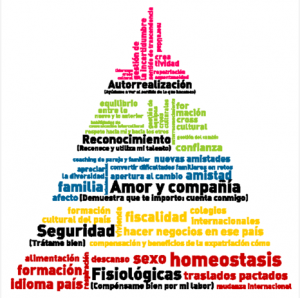Working with a multicultural team, in which employees of different nationalities and cultures work side by side, can be an exciting experience and achieve excellent results. However, to achieve success, first it is necessary to overcome the barriers inherent to diversity such as differences in criteria, values, priorities or organizational form using a cross cultural approach.
The keys to proper management of these types of teams, which are characterized by diversity and a mixture of workers from different cultures, are as follows:
1. Be aware of the differences and identify the best values of each culture
Although we must avoid generalizations and stereotypes, it is clear that each culture, or to be more accurate, the majority of people belonging to it, has developed a set of attitudes and skills that enable those people to cope better in certain areas. In the same way, there are also gaps in other types of skills.
It is important to be able to discern and appreciate the positive aspects of each culture. For example, workers from central Europe usually have the ability to plan from a serious and coherent perspective, while southern Europeans tend to stand out for their talent, ability to improvise and creativity.
2. Exploiting the differences to combine skills
The key to managing a multi-disciplinary team as well as possible is to find the best way to exploit the different skills we have already identified and appreciated in each culture.
The secret to making a working group as efficient and profitable as possible is no other than to combine skills and values rather than to opt for one specific way of working to the exclusion of all others. This is not a matter of choosing between planning and improvisation or formality and creativity. Rather, it is about combining skills and characteristics to obtain an excellent product or service as a result. It is about thinking of “Y” instead of “O”.
The Cirque du Soleil is a paradigmatic example of how very different attitudes and skills can be combined, resulting in a magnificent artistic product and an excellent business in terms of both organization and profitability.
3. Exercise inclusive leadership
A team characterized by diversity cannot function properly if the people who lead it lack an open and positive vision of the differences between the people comprising their team. The leader must be fully aware of the specific characteristics of his/her own culture, contrasting it in a positive way with the cultures of the team members.
Exercise inclusive leadership based on the following principles:
-
Always seek to unite and connect rather than divide and exclude.
-
Be curious and have the ability to see reality from multiple perspectives, especially when overcoming innovative challenges that depart from the established framework.
-
Frame the organization’s objectives in the wider context of improving the world and doing good.

All team members need to keep a very open mind and their leader needs to focus on inclusion rather than exclusion, if paradigms are to be shifted and structures demolished in the manner which led to the creation of innovative and visionary companies like Apple, Google and Ikea.





